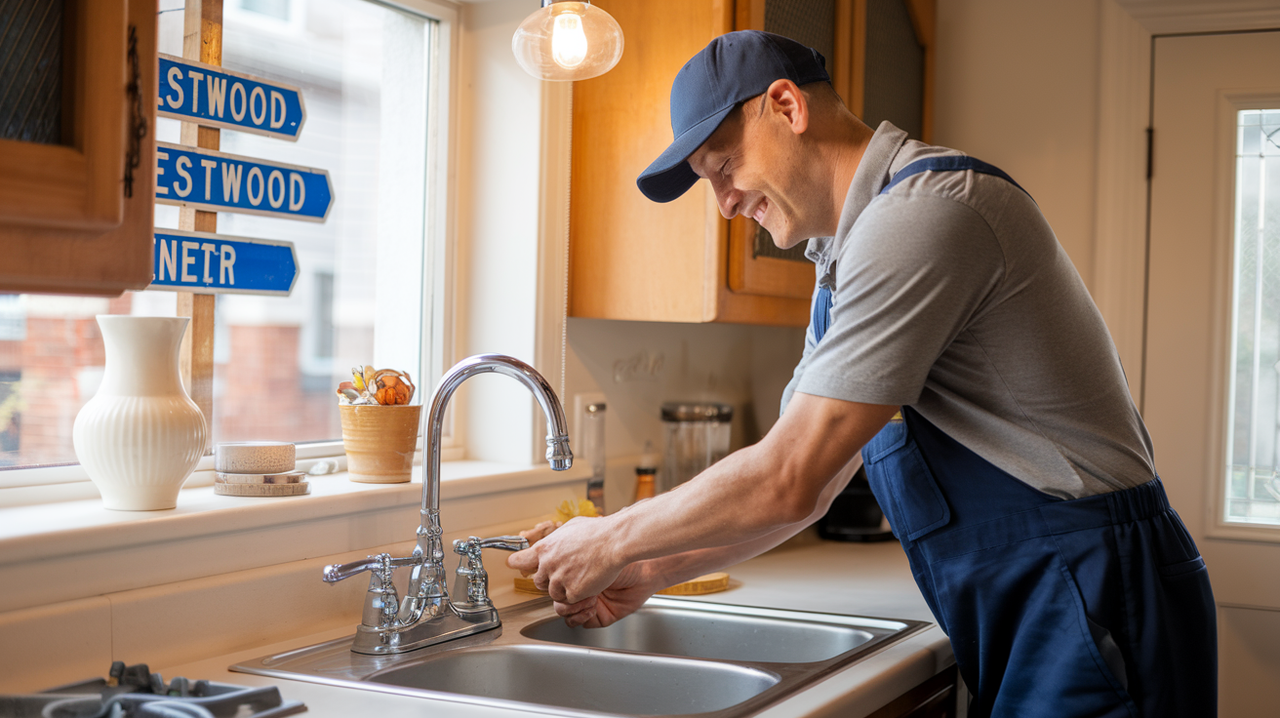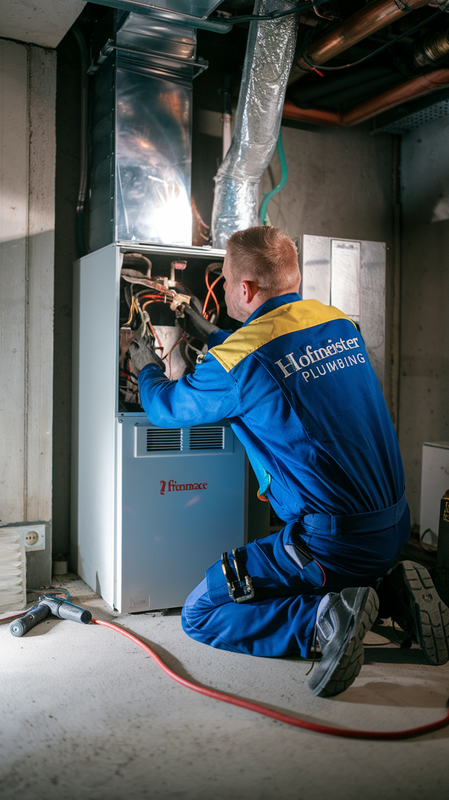Introduction
Plumbing has been an essential aspect of human civilization for centuries. From the intricate systems of ancient Rome to modern-day plumbing technologies, it allows us to enjoy clean water and proper sanitation. But did you know that there are three primary types of plumbing systems used today? In this comprehensive guide, we'll delve into what these types are, their applications, and why understanding them is crucial for homeowners and property managers alike. Whether you're seeking Westwood plumbing services, looking for local plumbers in Westwood, or simply curious about plumbing systems, you're in the right place.
What Are the Three Types of Plumbing?
When discussing plumbing, it's important to identify the three main categories: drainage systems, water supply systems, and venting systems. Each type serves a unique purpose but works together seamlessly to provide a functional environment.
1. Drainage Systems
A drainage system is responsible for transporting wastewater away from your home or building. This includes everything from sink drains to sewage lines.
How Drainage Systems Work
Drainage systems use gravity to move waste away from residential properties. When water is flushed down a sink or toilet, it travels through pipes that lead to the main sewer line or a septic tank.
Components of Drainage Systems
- Pipes: These can be made from various materials such as PVC, ABS, cast iron, or clay. Traps: These devices prevent sewer gases from entering your home by trapping water in the pipe. Clean-outs: Access points that allow plumbers to clear blockages easily.
2. Water Supply Systems
The water supply system is designed to deliver potable (drinkable) water into your home or facility. It’s essential for drinking, cooking, bathing, and cleaning.
How Water Supply Systems Work
Water supply systems typically involve a network of pipes connected to municipal water sources or private wells. The system uses pressure to ensure that water reaches all fixtures in your home.
Components of Water Supply Systems
- Main Supply Line: This brings water into your property. Valves: Control the flow of water and can shut off supply during emergencies. Fixtures: Sinks, toilets, faucets—essential components where water is utilized.
3. Venting Systems
Venting systems allow air into plumbing pipes, which helps maintain proper pressure and ensures smooth drainage.
How Venting Systems Work
Without proper venting, drainage can become sluggish due to air pressure differentials. Vent pipes allow air to enter the drainage system while also letting gases escape safely outside.
Components of Venting Systems
- Vent Pipes: Usually extend vertically through the roof. Air Admittance Valves (AAV): Allow air in without letting gases escape back inside your home.
Choosing Reliable Plumbing Services in Westwood
If you’re experiencing issues with any of these plumbing types, it’s crucial to seek help from qualified professionals like licensed plumbers in Westwood NJ. Here’s how you can find reliable services:
1. Research Local Plumbers
- Look for reviews online (Google Reviews & Yelp). Ask friends or family for recommendations.
2. Verify Licensing
- Ensure they are licensed and insured.
3. Get Multiple Quotes
- Contact multiple service providers for estimates on plumbing repair in Westwood.
4. Check Availability
- Look for urgent plumbing services Westwood NJ if you have an emergency situation.
What Is Level 3 Plumbing?
Level 3 plumbing refers to advanced skills often required for complex installations or repairs involving commercial buildings or specialized residential tasks.
What Does Level 3 Plumbing Include?
Typically includes:
Water heating- Installation of large commercial piping systems. Complex fixture installations that require advanced knowledge.
Having experienced plumbers in Westwood NJ who understand Level 3 plumbing ensures that intricate tasks are managed efficiently and effectively.

What Is The New Type Of Plumbing Called?
With evolving technologies come new forms of plumbing materials and techniques. One such advancement is PEX (cross-linked polyethylene).

Benefits of PEX Plumbing
Flexible installation options. Resistant to corrosion. Cost-effective compared to traditional copper pipes.However, there are some downsides too; let’s take a look at those below.
What Is The Downside To Using PEX?
Limited exposure to sunlight can degrade it over time. Not suitable for high-pressure situations compared with metal piping.Common Questions about Plumbing Costs
Understanding costs associated with various plumbing tasks can help you budget effectively when working with local emergency plumbers in Westwood:
How Much Should I Pay A Plumber Per Hour?
On average, plumbers charge between $45-$200 per hour depending on location and complexity of work involved.
How Much Do Plumbers Charge To Snake A Drain?
Generally ranges from Quality $100-$300 based on blockage severity and accessibility of the drain line.
How Much Do Plumbers Charge To Install A Toilet?
Installing a standard toilet usually costs between $150-$500 depending on removal requirements as well as type/brand selection.
Identifying Common Plumbing Issues
It’s vital not just knowing what types exist but also recognizing common problems associated with each:
What Is The Most Common Plumbing Repair?
Leaky faucets are among the most commonly reported issues because they waste significant amounts of water over time if left unaddressed!
Why Is My Toilet Constantly Running?
This issue often arises due to faulty flapper valves within tanks preventing proper sealing after flushing occurs leading excessive refilling cycles!
Preventive Measures For Homeowners
To avoid costly repairs down the line consider adopting preventive strategies:
Regular inspections by top-rated plumbers in Westwood before seasonal changes hit! Utilize drain screens throughout sinks/bathtubs preventing hair buildup/blockages!Emergency Plumbing Situations
Sometimes emergencies occur even with diligent maintenance! Here are some common scenarios:
Burst Pipe Repair Westwood – Immediate assistance may be necessary if flooding occurs! Emergency Leak Repair Westwood – Address leaks quickly before further damage happens!For rapid response plumber Westwood NJ ensure contact details are readily available should situations arise unexpectedly!
FAQ Section
Q1: How long does a water heater last?
A1: Typically around 10–15 years depending on maintenance and quality!
Q2: How do you know if you have a plumbing leak?
A2: Signs include unexplained increases in utility bills or visible moisture/damage around pipes/floors/walls!
Q3: Can a handyman replace a toilet?
A3: Yes! However always best practice hiring licensed professionals especially when dealing with potential leaks/issues arising afterwards!
Q4: How much does it cost to replace a water heater?
A4: Generally ranges from $800-$1500 depending on size/type selected along installation fees included!
Q5: How do I fix low water pressure in my house?
A5: Start by checking main shut-off valve ensuring fully open; inspect aerators/screens cleaning debris buildup as necessary!
Q6: What causes a drain clog?
A6: Clogs result mainly due accumulation fats/oils/hair/foreign objects leading reduced flow resulting backups over time!
Conclusion
Understanding what types exist within modern day plumbings such as drainage systems ,water supply & venting plays an essential role not only selecting reliable services but also maintaining efficiency within homes . If ever faced with needing immediate assistance don’t hesitate reach out experienced local emergency plumber Westwood who can offer same-day repairs ensuring everything operates smoothly again ! So keep this comprehensive guide handy whenever questions arise about various aspects related directly towards "What Are The Three Types Of Plumbing?" Remember knowledge empowers homeowners make informed decisions regarding their facilities' needs!